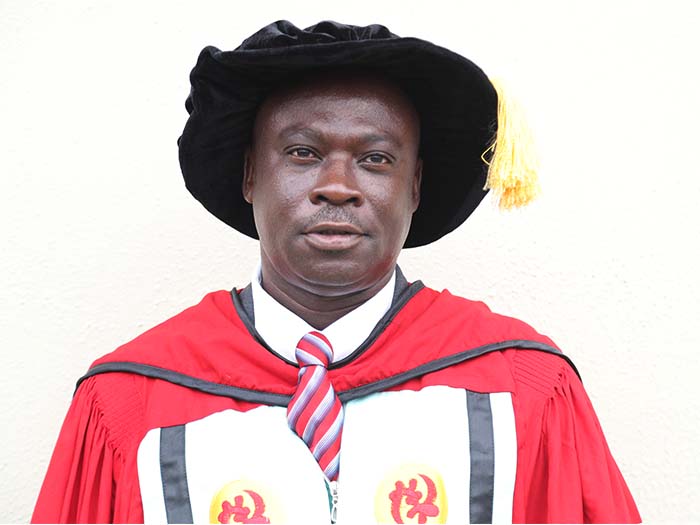Prof. Kwame Agyei Frimpong Receives African Plant Nutrition Outreach Fellowship Award
An Associate Professor at the Department of Soil Science, Prof. Kwame Agyei Frimpong has been awarded USD $5,000 for exploring innovative ideas on education, training, and communication programmes relevant to improving the use and efficiency of plant nutrients in African agro-ecosystems.
Prof. Frimpong and Prof. Bosede Olukemi Lawal of the Institute of Agricultural Research and Training, Nigeria were the only two Africans who were conferred with the awards sponsored by the African Plant Nutrition Institute (APNI), Mohammed VI Polytechnic University (UM6P), and OCP Group.
Project
Prof. Frimpong’s project proposal centered on the promotion of effective soil fertility management in smallholder farming communities in Ghana. According to Prof. Frimpong, “This outreach is intended to contribute to improvement in the livelihoods of the beneficiary farmers through increased crop yields and farmer incomes”. He noted that the project was aimed at influencing farmer perceptions and addressing their socio-economic orientations through enhanced access to needed information.
Prof Frimpong said it was expected that the outreach would lead to the design and future implementation of better-informed soil fertility and plant nutrition policies among the beneficiary farmers. “The outreach programme will use modern, effective and socially acceptable communication tools to generate evidence-based data and information on indigenous soil management practices, and incentives for effective use of fertilizer in two communities in Ghana,” he explained.
Findings and Recommendations
Highlighting on the findings and recommendations, Prof. Frimpong indicated that the study would be used to design a fit-for-purpose advocacy and capacity building programme for smallholder as well as serve as the basis for a more comprehensive study across the country. “Ultimately, this will enhance the adoption and integration of more effective soil fertility management practices into the Planting for Food and Jobs’ policy (PF&J) towards achieving the Sustainable Development Goals of no poverty (SDG 1) and no hunger (SDG 2) through improved agricultural productivity and food security and job creation across the country,” he pointed out.

